News
Senate Exposes Job Racketeering At FCC …Vows To Bring Perpetrators To Book
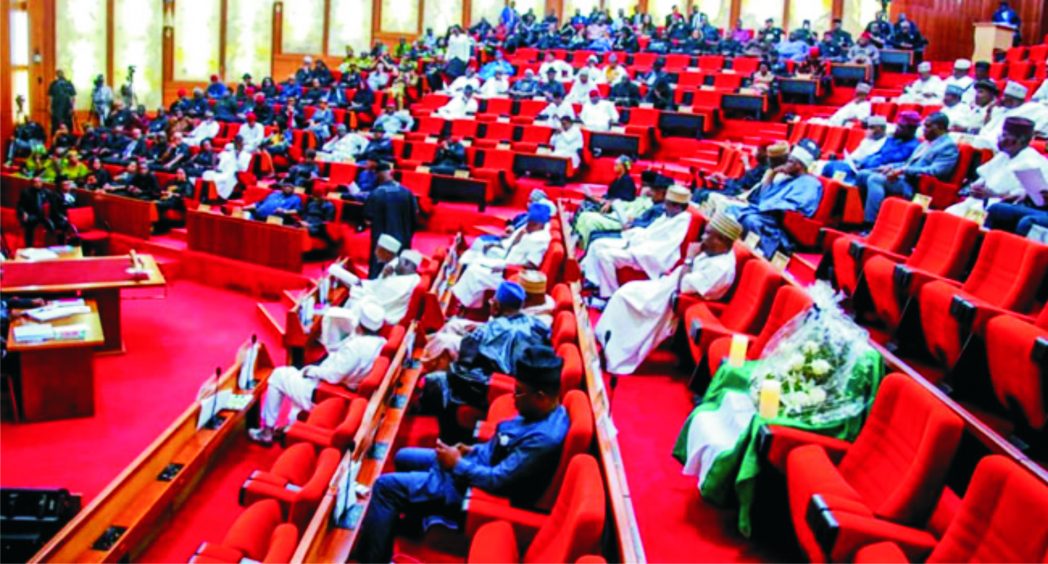
The Chairman, Senate Committee on Federal Character Commission, Danjuma Tella La’ah in Abuja, yesterday, exposed a job racketeering was going on at the Federal Character Commission (FCC).
Speaking with journalists in his office, the member representing Kaduna South Senatorial District, Danjuma Tella La’ah said, the matter was being investigated to unravel those involved in the racket.
According to him, there were reports from Nigerians that cartels within the fold of FCC sell jobs to Nigerians at a price that is highly dependent on agencies of choice of the applicant.
He explained how he got a text from a younger Nigerian who got appointment with the Nigeria Ports Authority (NPA) for N3million.
He described the situation as a terrible one that shouldn’t be tolerated.
He said: “Well, thank you for bringing the issue of job racketeering at the Federal Character Commission.
“The Senate Committee on Federal Character Commission has been investigating and we are doing everything possible to unravel those behind sales of jobs there.
“I got reports from different people on sales of jobs going on at the Federal Character Commission (FCC).
“Appointment into government offices for sales at the Federal Character Commission is real.
“Someone has forwarded to me a text which is in my phone that he purchased Nigeria Ports Authority job from the Federal Character Commission at N3million.
“This is shocking. It makes my heart bleed, am so sad and I am going to take drastic action in this case. If the committee finds out that this is what they have been doing, we are not going to take it lightly with them.
“No stone shall be left unturned in telling the whole country that the FCC is involved in job racketeering.
The lawmaker lamented how some elements were involved in underhand dealings in the agency, because of the pressure of unemployment among Nigerians.
“There is high unemployment rate in Nigeria. People finish school and there is no job anywhere only to be busy selling jobs. Does it make sense? It’s an embarrassment to the society; it’s an embarrassment to the government of President Muhammadu Buhari.
“The President had earlier made a statement that he wants to make everybody enjoy his administration whatever it will take and that hundreds of thousands of undergraduates will be given appointment.
“If the investigation we are doing confirms it to be true, we are not going to take it lightly. We are gradually closing in on them.
Similarly, the House of Representatives, yesterday, threatened to issue a warrant on government agencies that fail to appear before its Public Account Committee to answer questions on why they failed to submit their audited account to the Office of the Auditor General of the Federation.
The Chairman of the House Committee on Public Accounts, Rep. Oluwole Oke, who issued the threat, said such agencies have something to hide, stressing that the House was determine to unravel the reason for their refusal.
Specifically, Oke ordered the managing director of the Niger Delta Basin Development Authority to appear before the committee, today or risk arrest.
Oke issued the threat at the resumed sitting of the committee just as its members was told that 14 years after its closure, some workers of the Nigeria Mining Corporation have been receiving salaries from government.
Oke also directed that the Minister of Solid Minerals and Steel Development, the Minister of Water Resources and the Director General of the Bureau for Public Enterprises should cause an appearance before the committee to answer questions relating to agencies under their supervision.
The Minister for Solid Minerals and Steel Development as well as the Director General of the Bureau for Public Enterprises are to appear before the House Committee to explain why the agency that has been closed down since 2006 was still drawing salaries from the public funds.
The Assistant General Manager, Finance of the Nigeria Mining Corporation, Dauda Ibrahim Gambo, told that House Committee that agency was closed for privatisation and that they were asked to collaborate with BPE for a successful privatization of the place
However, about 24 former workers of the Lagos International Trade Fair, who were sacked when the agency was concessioned and absolved by the parent ministry are still collecting salaries from the organization.
The committee, however, placed all River Basin Development Authority on status enquiry, saying the House wants to get that root of the non-rendition of audited account to the office of the Auditor General of the Federation by treasury funded and partially funded agencies in accordance with the law.
The Anambra Imo River Basin Development Authority, Lower Benue River Basin Development Authority, Cross River Basin Development Authority, Sokoto Rima Basin Development Authority, Lake Chad Basin Development Authority, Benin Owena River Basin Development Authority, Lower Niger River Basin Development Authority were all placed under status enquiry by the committee.
Also placed on status enquiry was the Oil and Gas Free Zone Authority (OGFZA), while the National Agency for Food, Drug Administration and Control (NAFDAC) had its representative turned back.
A Deputy Director in the agency, Gbenga Yewande, had informed the committee that the director general could not attend the sitting because she was attending an international event at the Transcorp Hilton Hotel in Abuja.
Oke was particularly not happy with the office of the Auditor General for failing to issue constant reminder to agencies even when they are aware of default by the agencies.
Meanwhile, an Executive Director with the NIRSAL Micro Finance Bank, Dr. Lawrence Akande, who appeared before the committee inform them that even though the bank was established to help drive small scale investment in the country, there is no single kobo from public fund invested in the bank.
He said the only fund the bank was using for its operations was the share of the equity paid by the Bankers Committee who own 60 per cent of the bank equity.
He said the vision of the bank was to have branches in the 774 local government areas of the country, stressing that at the moment, they have only 53 branches and hope to complete another 60 before the end of the year.
News
Let’s Approach Regional Development Issues Differently – Fubara …As S’South Govs Host Fubara To 50th Birthday Celebration
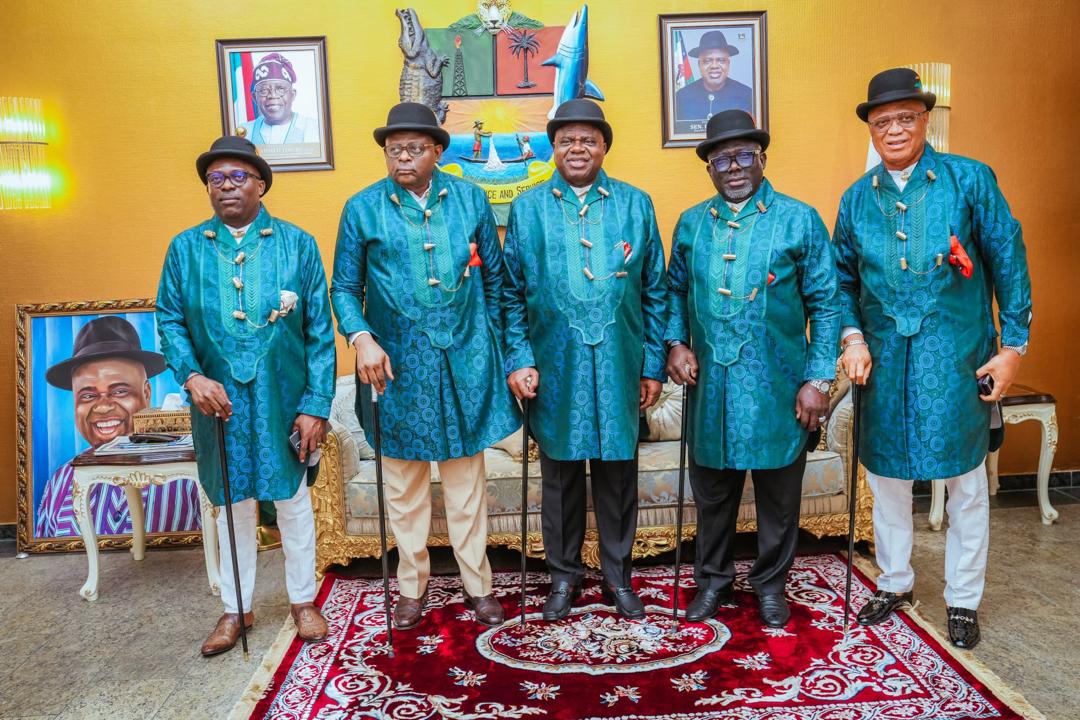
Rivers State Governor, Sir Siminalayi Fubara, has sued for a change in the current approach adopted by South South Governors in their pursuit to achieve holistic regional development and economic prosperity.
The governor insisted on de-emphasis in vested individuals’ political interests while looking at the bigger picture of achieving enduring regional integration that will strengthen unity of purpose to change the trajectory of development in the region.
Fubara made the appeal during the meeting of Governors of South-South States, under the auspices of BRACED Commission, at the Bayelsa State Government House in Yanagoa on Tuesday.
This was contained in a statement by the Chief Press Secretary to the Governor, Nelson Chukwudi.
BRACED is an acronym for Bayelsa, Rivers, Akwa Ibom, Cross River, Edo and Delta.
He said: “I want to appeal that if we have to succeed in this drive, we need to keep our political differences aside and understand that the struggle, as at today, is for posterity, for the development of our region.
“It is really sad that in Niger Delta that is the economic base of this country, the construction of a road that you tagged ‘East-West Road’ could be an issue, that we need to beg, protest, and complain to get it fixed. I don’t think it is proper.”
Governor Fubara stated that it is not that the federal authorities do not understand that Niger Delta needs the road but quickly added that they have seen that even the people of the region do not take themselves seriously.
The governor said the moment Niger Delta people stopped playing to the gallery, and place value on themselves, outsiders will have no option than to accord the region and its people due regard.
Fubara said: “On my part, I want to say this: This is not the first time we are meeting. For me, I followed the course of the region meeting in a forum that we tagged “BRACED Commission.”
“BRACED Commission is also one of the bodies that was constituted at that time to support and work out development strategies for this region. But what I am seeing today is just limiting this meeting to only BRACED COMMISSION.
“We need to widen the scope where other leaders of the region should be part of the discussion of the development of the region, and I think this is the direction that will help the region.”
Reading the Communique of the meeting, the new Chairman of the Forum of Governors of South-South States, and Governor of Bayelsa State, Senator Douye Diri, said they support the Federal Government Tax Reform Bills, and urged President Bola Tinubu to extend the Value Added Tax (VAT) sharing percentages to oil and gas derivation.
He stated the Forum’s request to the Federal Government to urge relevant stakeholders and agencies to extend remediation of polluted environment ongoing in Ogoni land to other impacted communities and States in the region.
Governor Diri also said that the Forum resolved to establish a structural regional security network to enhance safety and security, foster stable Niger Delta region conducive for economic growth and prosperity.
Highlight of the event was the hosting of Governor Fubara to a surprise 50th Birthday celebration by the Governors of South-South States at the Government House in Yenagoa.
News
Fubara Lauds Tinubu For Setting Up Education Load Fund … Vows To Ensure Rivers Benefit Maximally From Scheme

The Rivers State Government has applauded President Ahmed Bola Tinubu for conceiving the idea of setting up the Nigeria Education Loan Fund (NELFUND) which has opened up opportunities for youths to acquire tertiary education irrespective of their financial status.
Rivers State Governor, Sir Siminalayi Fubara, gave the commendation while playing host to a delegation from NELFUND who came on an advocacy visit to the Government House in Port Harcourt on Tuesday.
Represented by his deputy, Prof. Ngozi Nma Odu, Governor Fubara said in developed countries it is common for people to go through school with loans which they sometimes pay all throughout their lives, noting that “for us, it is more accessible and more friendly because you would be required to pay back the loan two years after your National Youth Service.
“It is a win-win situation; it is a situation where the youths in Nigeria should not say because my parents are poor or passed away I cannot improve on my educational growth. This offers them a golden opportunity and I am glad you came for this advocacy.”
The governor urged NELFUND to intensify its advocacy to let the people know how they can benefit from it, adding that it is more important when talking about vocational institutions.
“If you look at the developed countries it is people that went to the vocational schools that make so much money, because it is pricey to get somebody to do anything, we need to instil this into our people, our youths, because people sometimes tend to look down on people that went to vocational schools, it should not be,” he said.
Fubara expressed delight with the NELFUND programme and assured that the State Government would do whatever it can to ensure Rivers State benefits maximally from the scheme.
In his remarks, the Managing Director and Chief Executive of NELFUND, Dr. Akintunde Sawyer, informed the governor that they were in Rivers State to seek the support of the State Government towards the loan, stressing that President Tinubu has directed them to ensure no Nigerian student who has the ability and desire to get educated at tertiary level is denied the opportunity due to lack of funding.
He explained that the scheme provides interest-free loans to students who apply, adding that these loans are not repayable until two years after their Youth Service when they must have gotten a job.
News
UK Appoints British-Nigerian As Trade Envoy To Nigeria

A British-Nigerian politician, Florence Eshalomi, has been appointed as the United Kingdom’s trade envoy to Nigeria.
Her appointment makes Eshalomi the second Nigerian to hold the position.
Confirming her appointment on X on Tuesday, she wrote: “It is an honour to have been appointed as the United Kingdom’s Trade Envoy to Nigeria.
“I’m looking forward to building on my close ties with Nigeria to promote a strong and flourishing economic relationship between our two great nations.
“I am looking forward to strengthening the UK’s relationship with Nigeria to explore shared growth and opportunities for both countries.”
Announcing the appointment in a statement on Tuesday, Jonathan Reynolds, the UK’s Business and Trade Secretary, said the decision was aimed at attracting investment into the UK and boosting economic growth.
“I’ve launched a new team of trade envoys who will use their experience, expertise, and knowledge to unlock new markets around the world for British businesses, attract investment into the UK, and ultimately drive economic growth,” Reynolds said.
Eshalomi, 44, is an MP representing the Vauxhall and Camberwell Green constituency.
She holds a Bachelor of Arts (Hons) in Political and International Studies with Law from Middlesex University.
-
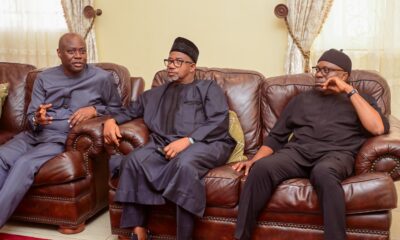
 Politics5 days ago
Politics5 days agoPDP Governors’ Forum Pays Condolence Visit To Makinde …Over Demise Of Elder Brother
-
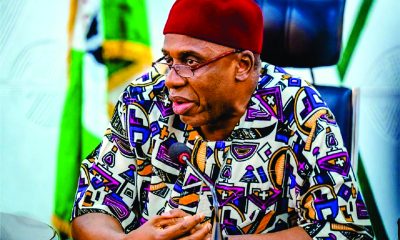
 Politics5 days ago
Politics5 days agoHow I Would’ve Handled Subsidy Removal As President – Amaechi
-
Nation5 days ago
NGO Honours Individuals, Groups For Outstanding Contributions To Humanity
-
Politics5 days ago
Stop Lying About Your Wealth, Odinkalu Knocks Buhari
-
Business5 days ago
CBN Releases FX Code To Mitigate Financial Risks
-
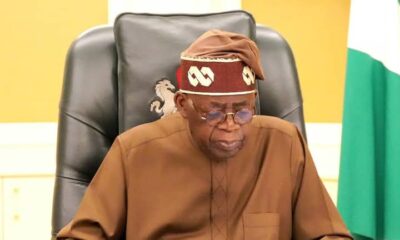
 Editorial5 days ago
Editorial5 days agoNo To Hike In Telecom Tariffs
-

 Featured5 days ago
Featured5 days agoFG Suspends Max Air Operations For Three Months Over Kano Incident
-
Nation5 days ago
Rivers CP Eulogises LG Boss Over Donation Of Vehicles







